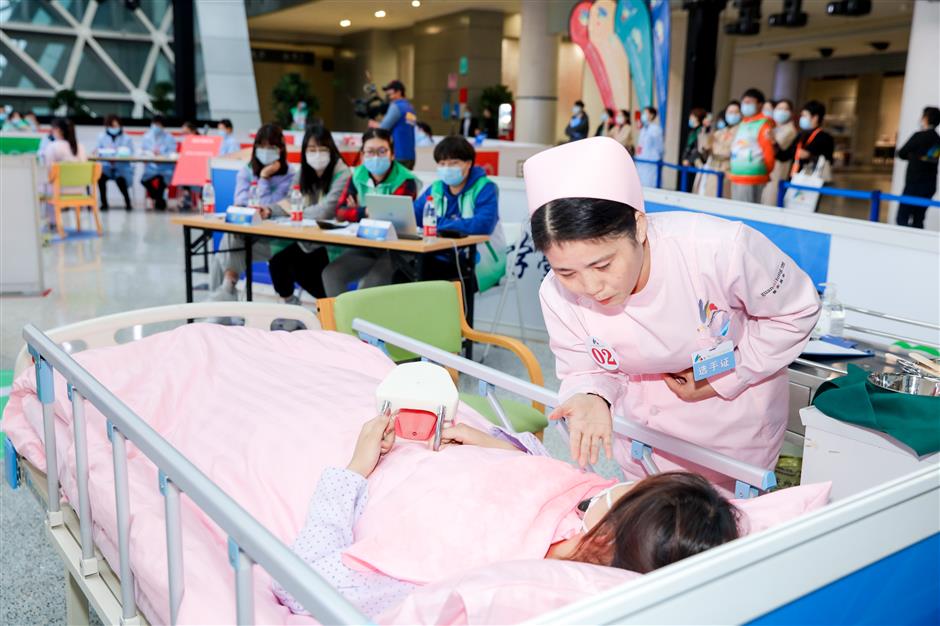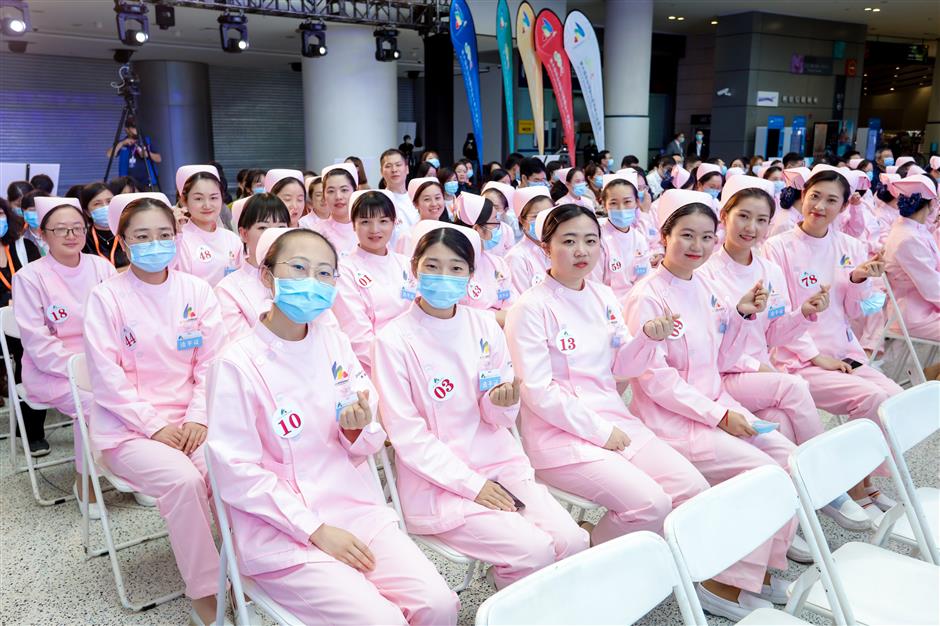Senior-care workers compete in skills contest

A senior-care worker demonstrates her nursing skills during the competition on Friday.

Participants take numbers for the competition.
Senior-care workers in the Yangtze River Delta region are putting their knowledge and nursing skills to the test in a competition which aims to foster the development of the nursing industry.
The three-day event, launched at the Shanghai Science and Technology Museum on Thursday, is held every two years.
An initial-round selection included about 150,000 senior-care workers from nearly 8,000 senior homes in the region.
The competition tests the basic nursing and rehabilitation skills of senior-care workers. Their emotional care for the elderly is also part of the contest evaluation.
Twelve finalists will compete in the last round on Saturday.

A senior-care worker demonstrates her nursing skills during the competition on Friday.

The event will improve the professional skills of participants and promote the professional elderly nursing groups in the region, said Chen Yuebin, director of the Shanghai Civil Affairs Bureau's senior service department.
Shen Jiali, 29, has 10 years of experience in the field. She is a senior-care worker at the Shanghai No. 3 Social Welfare House.
"I chose this career because I want to learn how to take care of my parents when they are old," she said.
Shen cares for seniors with cognitive disorder.
"It's not easy to communicate with them, and I need to carefully observe their subtle changes to judge whether they feel uncomfortable, are sad or losing appetite," said Shen.
"The competition requires us to show skills and nursing procedures, such as how to change the clothing of the elderly or how to take care of those with fracture," she said.
By the end of last year, people aged 60 or above in the delta region totaled 46.77 million. This population is estimated to surge to 75 million by 2035, or 33 percent of the region's permanent population at that time.
















